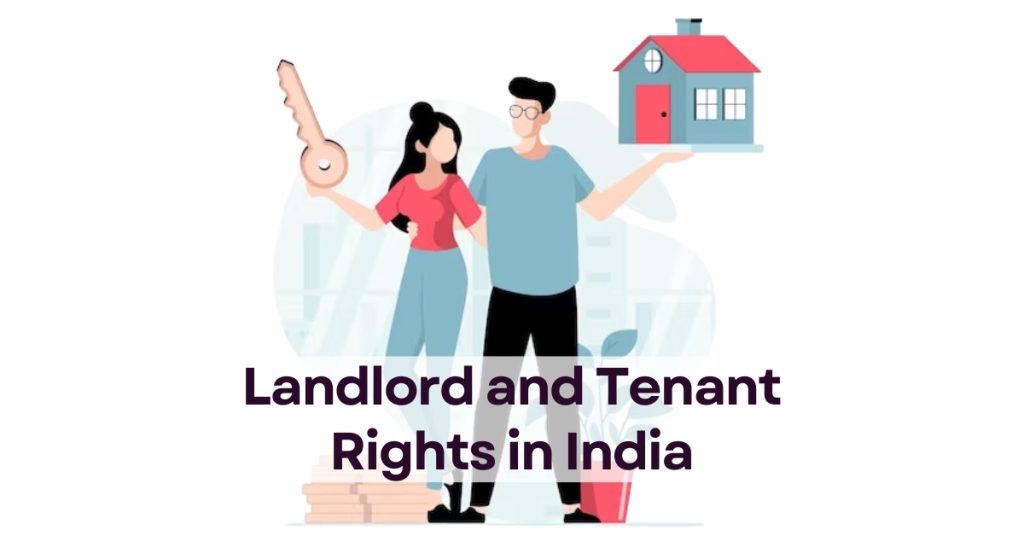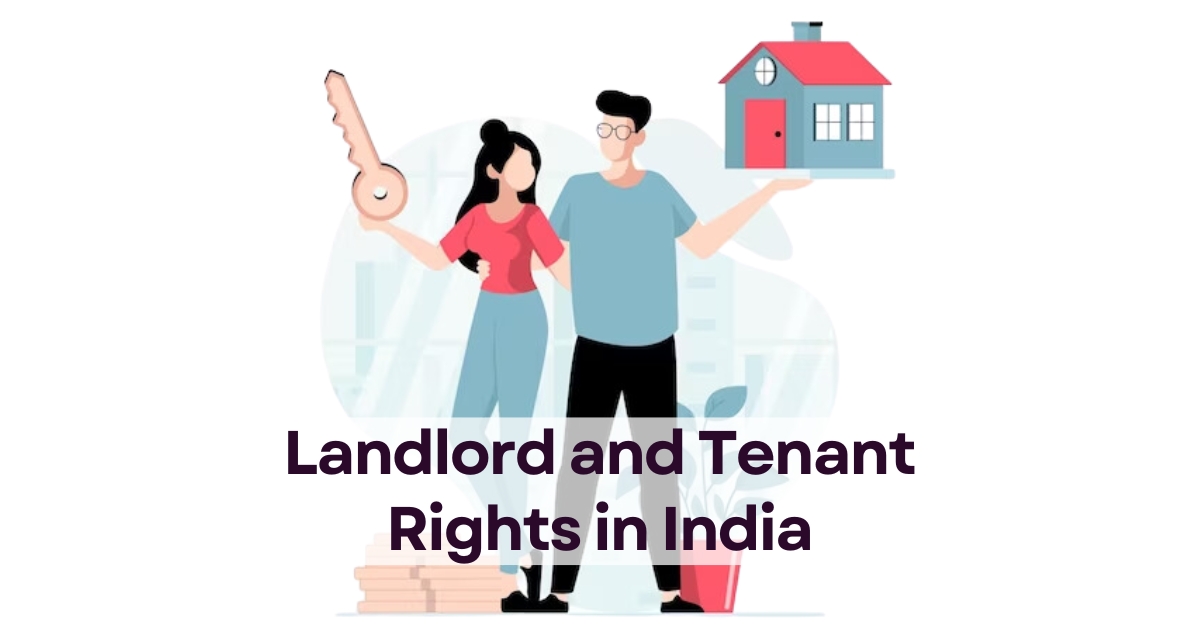
Table Of Content
- Do Landlords and Tenants have any rights in India?
- Rights of Tenants in India
- Rights of Landlord in India
- Does the tenant have any legal right without a contract?
- What steps can a landlord take if a tenant refuses to leave?
- Can a tenant refuse to leave the rented property?
- Conclusion
One of the most important legislative frameworks in India for safeguarding tenant rights is rent control legislation. Nonetheless, landlords frequently contest these rules, resulting in the development of a convoluted judicial system that serves their interests. Tenants must therefore be aware of their legal rights in order to prevent any disagreements from developing between them and their landlords. This essay describes the Landlord and Tenant Rights in India have with regard to tenancy agreements under Indian law.
Do Landlords and Tenants have any rights in India?
Laws are made for a smooth functioning around the country. For example, Traffic rules for safety and to prevent accidents. Likewise there are rules and laws regarding the living in rental premises. Both landlord and tenant rights in India have been mentioned under the Rental Control Act which we will be discussing below. The legal rights of Tenant and Landlord In India are as follows:
Rights of Tenants in India
- Fair Rent: The point that a tenant should keep in mind is that whatever payment they are making to the Landlord. They should be knowing where the money is going and for what purpose. No extra amount should be asked from the Landlord side. But there might be chances that they ask you at the time of vacating the property. The tenants should have proof like receipts, account transfer records etc so that if by mistake they paid the landlord extra they have the proof to recover it. Also the rent should be around 8% to 10% of the value of the rented property all the other costs included such as construction and fixtures.
- Unfair Eviction: The Act prohibits the landlord from evicting a tenant without a good reason. States have relatively differing laws regarding evictions. In many places, a landlord needs to apply to the court and get an order before they can remove a tenant. If the renter is open to accepting rent adjustments, they may be unable to have their lease Cancel or terminated in some states.
- Primary Service: Tenants rights in India is to use utilities like power and water supplies.The tenant has full right to get their problem resolved for example breakage of tiles, etc. Even in cases when the tenant has neglected to pay rent on the same or a separate property, the landlord is not entitled to terminate these services.
- Privacy: One of the most important rights. After renting out the property the Landlord cannot visit at any moment. It will be counted as a privacy invasion on which the tenant has the right to take legal action toward the landlord.
Rights of Landlord in India
- Right to Evict: Under landlord tenant law, the landlord has the right to evict the tenant on any kind of illegal activity or misbehavior with the neighbors or any complaint from the maintenance office etc. Whereas there might be reasons where the Landlord himself needs that property for personal reason/use. The landlord’s right is to go through the proper eviction procedure; he cannot drag the tenants out without letting them serve their notice period. Notice Period is the time where the tenants have the time to look for a new place.
- Changes in Rent: According to the Landlord and Tenant Law, the landlord can change the rent amount when it is time for the renewal of the Agreement. Else it is against law to change the rent in between without any solid reason. Legal action can be taken against such a decision.
- Changes made in the Rented Property: If the landlord has to make any kind of changes in the rented property. He is allowed to do so but there should be no kind of inconvenience to the tenant while the construction work is going on.
Does the tenant have any legal right without a contract?
If there’s a tenant who is living without a rent agreement still he/she has the rights under the rent control act. The tenant can speak up like any other tenant if he/she faces any kind of inconvenience from the landlord’s side. A tenant’s legal rights without contract are as much in power as a tenant bound by a rent agreement. But in such cases the are few disadvantages such as:
- Increment in Rent – Since there is no written proof then the landlord can raise the rent. The landlord is liable to tell this beforehand to the tenant.
- Eviction – It becomes easy for the landlord to get his rental property vacated. Though the tenants law still works so the landlord cannot forcefully evict them out but can go through the eviction procedure.
If a landlord violates a tenant’s legal rights, such as by not providing a livable place, etc However, it could be more challenging for the tenant to establish their case in court if the lease isn’t in writing.
What steps can a landlord take if a tenant refuses to leave?
The steps that a landlord can take under rent control act if the tenant refuse to leave the rented property are as follows:

- First try giving 15 days notice to the tenant. Many times it works out without any problems.
- If the tenant does not vacate the premises then you can take legal help from a legal expert or advocate and send a legal notice to the tenant. Make sure that the legal notice is as detailed as it could be so that your point is cleared out and understood in the eyes of law.
- Most probably the situation will be resolved with the legal notice getting in the hands of the tenant because no one wants to get engaged with court proceedings and all.
- Lastly you can take the case to the court and drag the tenants out of the rented premises.
Can a tenant refuse to leave the rented property?
Yes, if the landlord is forcefully trying to evict the tenant without even the completion of the tenure. That comes in the rent control act under the rights of the Tenant. But if the situation is that the tenant is not vacating the rented property even after completing the tenure and notice period then it is not right. The landlord can take legal action against the tenant. It would be much better if the landlord took legal help and let the court and officers handle it. Law works on the evidence so the stronger evidence the more chances of the parties to win it. The landlord only needs to provide the agreement and other proofs to showcase the forceful use of his space.
Conclusion
The landlord and Tenant rights In India and interests are currently protected by the Rent Control Act of 1948 and various state rent control measures, making it impossible for landlords to take advantage of their tenants. Tenants are granted numerous rights under the 1948 Rent Control Act. Citizens generally don’t comprehend their legal responsibilities and fundamental rights. And a lot of individuals use this ignorance to their advantage in order to get what they want. However, with the internet at your fingertips in this day and age, you may educate yourself on your legal rights and comprehend the ways in which the law gives you authority.


